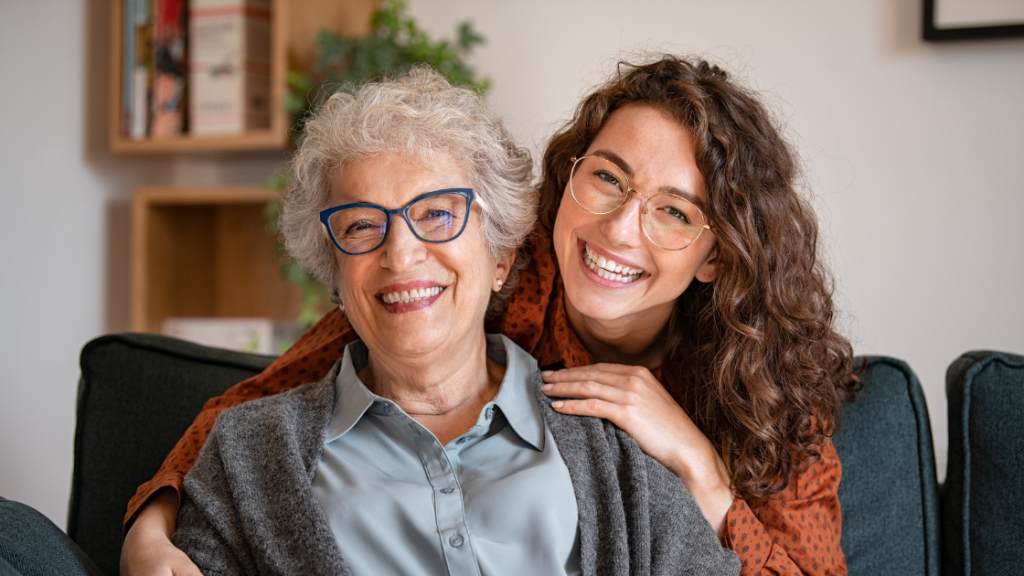As one enters their sunset years, it is normal to want to revel in the coziness of home. This works well when people are entering the retirement phase but as time goes on, having more hands to assist makes more sense. That’s the time when everyone gets thinking about in-home elderly care.
As a popular option among many people, in-home care for the elderly has its pros and cons. If you are weighing the options for yourself or a loved one, here’s a quick guide.

In-Home Elder Care: Pros
Independence
Elderly home care gains its reputation mainly from the independence that the seniors enjoy. Unlike many other options available, here the individual retains the authority to control things both small and large. In-home care gives you the freedom to decide your daily routines, schedules, and activities, making it a standout choice.
Personalization
In today’s world, where people look for services that fit their needs, it’s no surprise that senior care options offer personalized support. These services include medical care, help with daily tasks, and companionship, all tailored to each individual. Moreover, this approach allows seniors to age in familiar surroundings, promoting emotional well-being.
Assurance for the family
Home care services also offer peace of mind for family members, knowing their loved ones are receiving attentive and compassionate care in the comfort of their own homes.
Cost-effective
In a lot of cases, having elderly care services come into your home can be more easy on your wallet than assisted living or other care options. However, this could always vary depending on the nature of care and intensity of support required.
In-Home Elder Care: Cons
While home care offers numerous benefits, there are also potential drawbacks to consider. When it comes to in-home elder care, there are too many variables to consider as well.
Finding the right fit
As professional caregivers can be costly, especially for individuals without adequate elder care insurance or financial resources. In such cases, finding the best caregiving service that fits within a budget can be a long and arduous process of trial and error.
Home modifications
Ensuring the safety of elderly individuals in their own homes may require permanent modifications or renovations, adding to the expenses. In addition, this might bring down the property value in many cases.
Social isolation
Another challenge is the potential for social isolation, particularly if seniors lack regular interaction with peers or caregivers. Loneliness can contribute to mental health issues such as depression and anxiety.
Access to specialized attention
Relying on home care may limit access to specialized medical services available in institutional settings, potentially compromising the quality of healthcare received.
Alternatives to At-Home Care for Elderly
Assisted Living
If you’re not already familiar with assisted living, it’s a kind of elderly care facility that provides a supportive living environment for those who need help with daily tasks but don’t require intensive medical care. These facilities offer various services including preparing meals, keeping the house clean, managing medications, and assisting with personal care.
Here, the residents also have access to social activities and recreational programs, fostering a sense of community and companionship. Assisted living facilities aim to promote independence and dignity while ensuring safety and well-being.
However, costs can be significant, and the level of care may vary depending on the facility’s staffing and resources. It is essential for families to thoroughly research and visit potential facilities to find the best fit for their loved ones.
Adult Daycare
For many seniors, round-the-clock care is not entirely required. For such individuals, adult daycare programs offer valuable support. These programs also have socialization opportunities for elderly individuals, providing a safe and stimulating environment outside the home.
Usually, adult daycare operates during the day, giving caregivers time to work or handle other duties while their loved ones get supervised care. Participants join in activities suited to their interests and abilities, which help keep their minds sharp and bodies active. Additionally, these centers provide healthy meals and access to healthcare services like managing medications and therapeutic treatments.
Elderly Monitoring Devices
In today’s tech-driven era, seniors have access to innovative monitoring devices that offer a myriad of benefits. These devices enhance safety, provide peace of mind for caregivers, and empower older adults to maintain their independence. By utilizing wearable emergency buttons, motion sensors, and smart home systems, seniors can receive real-time monitoring of vital signs, activity levels, and environmental conditions. This technology allows caregivers or emergency services to be promptly alerted in case of falls, medical emergencies, or deviations from regular routines.
Amidst the ever-growing technological advancements, it’s essential to underscore the importance of elderly care. Additionally, some seniors may be hesitant to use monitoring devices due to feelings of intrusion or loss of autonomy. The well-being of our aging population relies not only on technological solutions but also on compassionate care and support. Despite these considerations, the overall impact of elderly monitoring devices is undeniably positive, contributing to the improved quality of life for seniors in today’s fast-paced and technology-driven world.
Devices like wearable emergency buttons, motion sensors, and smart home systems allow for real-time monitoring of vital signs, activity levels, and environmental conditions. They can alert caregivers or emergency services in case of falls, medical emergencies, or deviations from regular routines.
Concerns about privacy, data security, and overreliance on technology are common with monitoring devices. Some elderly individuals may also resist using these devices due to feelings of intrusion or loss of autonomy.
Final Thoughts
Choosing from the options for elder care is not a simple task. Before making a decision, it is crucial to consider various perspectives. CareFlick aims to aid caregivers in every way possible, even in making informed decisions.
Visit our LinkedIn page for the latest updates on our company, including exciting developments and new offerings. Stay informed and connected with us as we continue to grow and provide valuable learning opportunities for professionals in caregiving industries.



